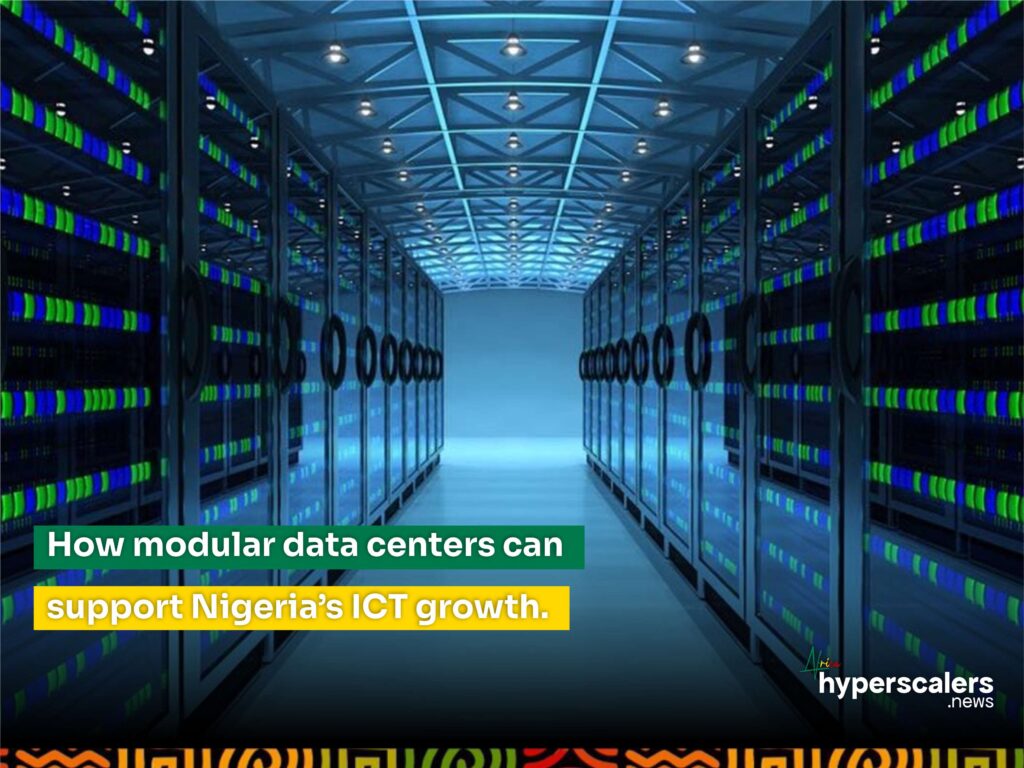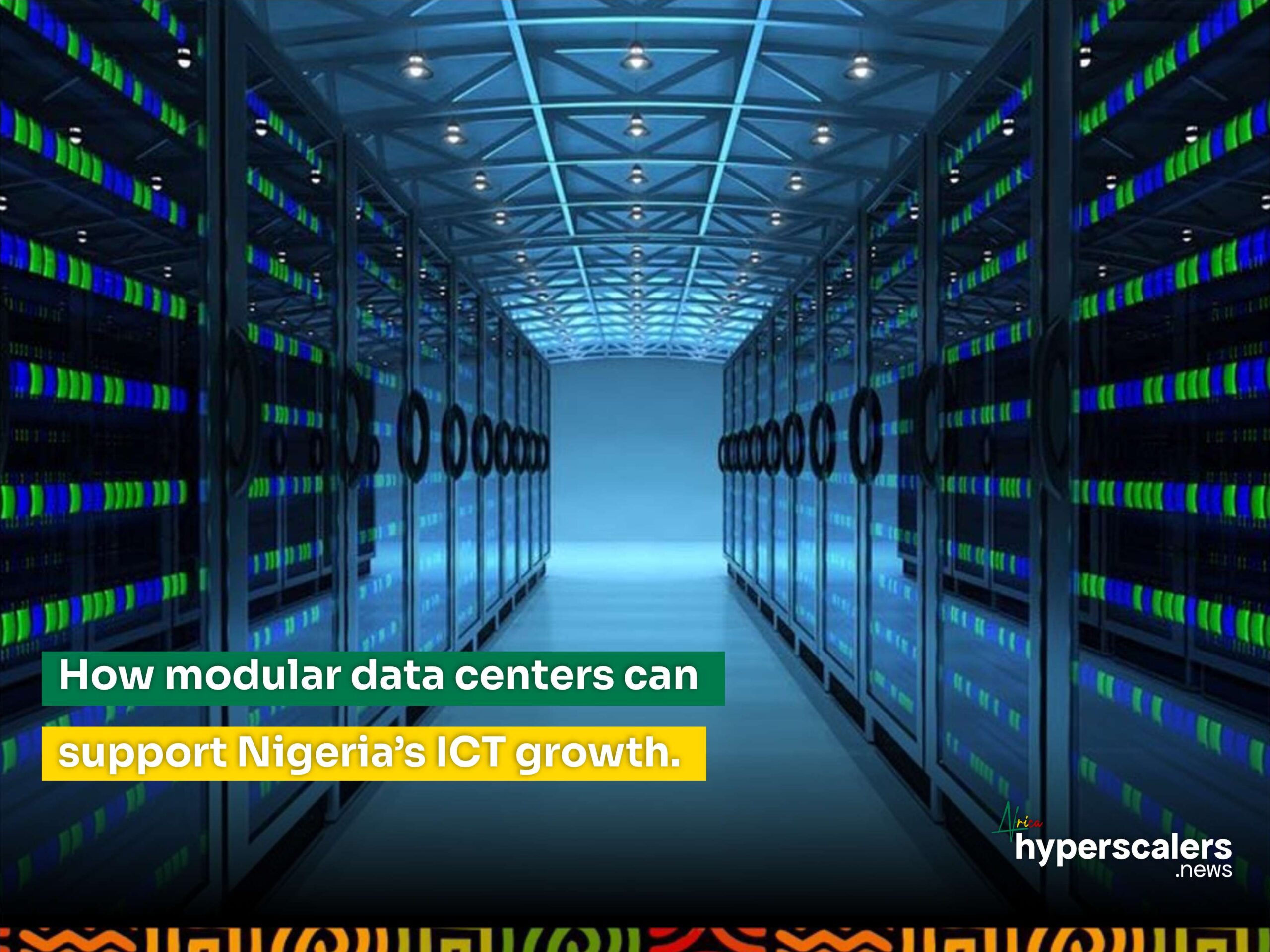By Gary Chomse, Regional Director, Central and Southern Africa at Vertiv
Nigeria’s information and communications technology (ICT) sector is experiencing robust expansion, driven by the financial services, oil and gas, and fintech industries. This growth opens up new investment opportunities for data centers, particularly to support advancements in cloud computing infrastructure and the rollout of 5G technology.
According to a 2023 research report, the size of the Nigerian data center market is projected to grow at a compound annual growth rate (CAGR) of almost 20 percent (17.9 percent) during the period 2021-2027. Critical aspects of Nigeria’s data center ecosystem include the need to deploy next-generation data infrastructure for agility and sustainability, as well as the ability to scale up as required.
The strategic use of prefabricated modular data centers can help address these challenges.
Adding Data Center Capacity
The complexity of new technologies—such as machine learning (ML) and artificial intelligence (AI)—alongside the expansion of the network edge, is driving the need for enterprise data centers to increase their capacity. Many local organizations will need to plan for additional capacity due to growing reliance on digital applications and the realization that in-house options may not be sufficient. The objective is to add capacity quickly and easily without compromising on network security or financial performance.
Prefabricated modular data center offerings provide sophisticated, customizable, and scalable solutions to modern capacity challenges, offering factory-built reliability, rapid deployment, flexibility, and efficiency.
While prefabricated modular data centers are not a new concept, the technology has significantly improved since its introduction around 15 years ago, along with advancements in building practices. These sophisticated, fully integrated IT solutions can be tailored to meet specific needs and deployed swiftly wherever computing resources are required.
Benefits of Prefabricated Modular Data Centers
In addition to being an easy-to-implement, cost-effective alternative to traditional data centers, prefabricated modular data centers offer several advantages:
- Factory-engineered reliability: Prefabricated solutions are engineered, assembled, and tested in the factory, resulting in offerings that are robust, reliable, and repeatable. This reliability can lead to reduced repair and service calls over the system’s lifespan.
- Speed of deployment: Integrated modular solutions can be constructed while on-site activities continue. Moreover, because they are fully integrated and virtually plug-and-play, these solutions can be commissioned and made operational much faster than traditional data centers – up to 30 percent more quickly, in fact.
- Customizable: Modern modules are tailored to customer specifications, allowing for quick and efficient repetition of configuration and build as demand increases. This simplifies operation and service.
- Flexible: Integrated modular solutions can be designed and configured to support various architectures, including high-density computing and liquid cooling. Additionally, a modular solution is portable and can be relocated as network demands change, for instance, to better support low-latency applications.
- Reduced waste: As integrated, closed systems, these solutions can be engineered to minimize waste and enhance sustainability compared to traditional designs.
- Cost certainty and scalability: The total cost of ownership is typically lower for integrated modular solutions, which also allow organizations to add capacity when and where it is required.

Meeting Market Growth Requirements
As highlighted, the data center industry in Nigeria is expected to experience significant growth in the coming years, projected to reach USD 646 million by 2030, following its 2023 valuation of USD 250 million—an anticipated doubling in just over five years. This growth is fueled by the increasing demand for data storage and processing driven by the rise of the digital economy and the growth of internet usage in Nigeria.
To support this growth, enterprise data centers seeking to add compute, power, or cooling in smaller increments can leverage modular solutions from Vertiv, a global provider of critical digital infrastructure and continuity solutions.
Vertiv remains dedicated to addressing critical data center challenges across the continent, promoting the advancement of ICT enablement and digitalization throughout the Central African region. The organization established its office in Lagos, Nigeria, in 2003, staffed by highly trained local sales, service, and project delivery teams. Over the years, Vertiv has built a strong, loyal local customer base, gaining recognition for delivering reliable prefabricated solutions tailored to regional needs.
Gary Chomse is Regional Director, Central and Southern Africa at Vertiv





